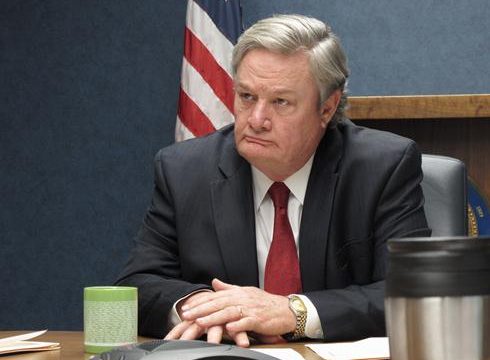When Do You Plan On Governing, Governor Dalrymple?

North Dakota Governor Jack Dalrymple
We all know that North Dakota Governor Jack Dalrymple is a lead-from-behind sort of leader. He doesn’t like to be out in front on issues. Reticence was a feature of former Governor John Hoeven’s time in office, and Dalrymple has carried on the tradition into his own term of government.
Dalrymple, like Hoeven, prefers to live above the fray. Perhaps there are good things we can say about that, but at some point if you want to lead the fray is unavoidable.
Recently Dalrymple signed into law some very controversial pro-life legislation that has, without a doubt, plunged this state into what will be years of impassioned, divisive debate and costly legal battles. I happen to think it was the right call – protecting life is worth it – but I had to cringe when Governor Dalrymple said he had “no personal belief” that guided his decision.
That’s not exactly an inspiring sort of leadership.
But where Dalrymple might be forgiven in that instance for at least having the courage to make the tough choice, his lack of leadership on the issue of higher education is inexcusable.
There is currently a civil war in the state’s 11-campus, multi-billion dollar university system. A group of university presidents, partnered with certain legislators and members of the State Board of Higher Education who Dalrymple appointed, are working a campaign of character assassination against Chancellor Hamid Shirvani who was hired to govern the system last year.
The situation is very much in need of an “adult in the room,” and while by law Dalrymple has no direct control over the university system (that’s part of the problem, more on that in a moment) he certainly has a bully pulpit. He’s the governor. He could speak out.
Sadly, Dalrymple isn’t that sort of leader. Which is to say, on this issue he isn’t a leader at all. It’s amazing to watch as the university system, one of the state’s largest branches of government, is thrown into chaos as the state’s chief executive sits on the sideline and watches.
I suspect that, if asked to join the fray, Dalrymple would likely come down against Shirvani. In fact, it seems from several sources that the governor’s office is quietly working to be rid of Shirvani. I think Shirvani has the right ideas for higher education reform in the state, and I’d hate to see him pushed out, but I hate the sneaking-around and behind-closed-doors maneuvering even more.
Dalrymple’s seeming complacency, from the public perspective, is enabled by the independence of the university system. Per the state constitution, the university system is a sort of fourth branch of government. The governing board is appointed by the governor, but they can’t be removed once appointed short of impeachment for some sort of crime. Put simply, the governance of the university system is accountable to nobody. Not to the people, and certainly not to anybody elected of the people.
Many higher education apologists are quick to tout the wisdom of this independence, but I would argue that it is central to higher education’s problems in the state. Not only are the appointed leaders of the university system unaccountable, but elected leaders such as Dalrymple are able to use this independence as an excuse to shirk their responsibility to govern.
We should change how the university system is governed – Rep. Al Carlson’s amendment to do away with the State Board of Higher Education is still alive and well in the legislature – but we shouldn’t need a constitutional amendment to prod our leaders into leading.
Shame on Governor Dalrymple for putting politics above leadership.







